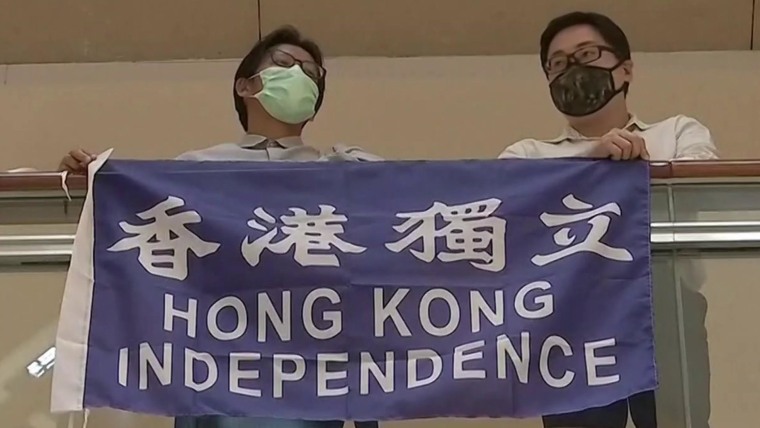China unveiled new details of its draft security law for Hong Kong on Saturday, paving the way for one of the most profound changes to the governing of the semi-autonomous territory, since it returned to Chinese rule in 1997.
A special bureau in Hong Kong to investigate and prosecute crimes considered threatening to national security is planned for the area, according to details released by China's state-run Xinhua news agency.
New police and prosecution units will also be set up to investigate and enforce the law and Hong Kong will establish a committee to safeguard the legislation, headed by the city's leader Carrie Lam and supervised by the central government.
Lam will also have the power to appoint judges to hear cases related to national security. Currently senior judges allocate judicial rosters through Hong Kong's independent judicial system.
The announcement comes after a three-day meeting of the Standing Committee of the National People's Congress — the top decision making body of China's parliament. It did not, however, confirm whether the law had been finally enacted.
The security law sparked widespread global condemnation when proposed in May at the National People's Congress, China's annual political convention where thousands of delegates of the ruling Communist Party meet to decide policy.
The meeting approved the framework of the law by 2,878 votes to 1, but the details were only furnished this week by senior party officials.
While the exact time frame for enacting the law is not clear, political analysts expect it will take effect ahead of Legislative Council elections in Hong Kong on Sept. 6.
Legal experts say it is unclear whether once passed in Beijing, the law will also need to be approved or implemented by Hong Kong's Legislature.
The territory, which was handed to China after British colonial rule ended in 1997, has been governed by a unique model aimed at guaranteeing freedoms not granted on the mainland. Critics fear those will now be snuffed out by the law.
The bill has already been heavily criticized by the U.S., which said it would revoke some of the preferential conditions it extends towards Hong Kong.
Secretary of State Mike Pompeo tweeted on Thursday that he and other members of the Group of Seven leading economies (G7) had voiced their "grave concern" over the legislation to Beijing, and urged China to reconsider its decision.
His comments followed a meeting with China's top diplomat, Yang Jiechi, held in Hawaii last week.
Yang told Pompeo at the meeting that Washington needed to respect Beijing's positions on key issues such as Hong Kong, Taiwan and Xinjiang, according to a statement from China's foreign ministry on Thursday.
Pompeo has previously told Congress that Hong Kong could no longer be regarded as autonomous from mainland China, setting the stage for the likely removal of preferential trade concessions.
The U.K. has said it will offer passports and a path to citizenship to as many as 3 million Hong Kong residents. Taiwan has also voiced similar support.
Meanwhile, China has repeatedly warned foreign governments against interfering in its internal affairs.
Officials in Beijing and Hong Kong have been at pains to reassure investors that the law will not erode the city's high degree of autonomy, insisting it will only target a minority of "troublemakers" who pose a threat to national security.
Reuters contributed to this report.
Ed Flanagan contributed.
World - Latest - Google News
June 20, 2020 at 10:52PM
https://ift.tt/3elaMMm
China unveils details of national security law with sweeping new powers over Hong Kong - NBC News
World - Latest - Google News
https://ift.tt/2SeTG7d
Bagikan Berita Ini
















0 Response to "China unveils details of national security law with sweeping new powers over Hong Kong - NBC News"
Post a Comment